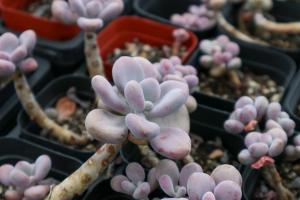Introduction
Tomatoes are one of the most popular plants in the garden due to their delicious taste and versatility in cooking. However, growing tomatoes can be a little tricky and requires proper care and maintenance. One common question that arises is whether or not to fertilize tomatoes when planting. In this article, we will discuss the pros and cons of fertilizing tomatoes when planting and determine whether it is necessary or not.
The Benefits of Fertilizing Tomatoes When Planting
Fertilizing tomatoes when planting can provide many benefits. Firstly, it can help improve the overall health and growth of the tomato plant, resulting in a higher yield of tomatoes. Secondly, it can help boost the plant's resistance to diseases and pests, which can be a common problem with tomato plants. Thirdly, it can help improve the quality of the fruit, resulting in a better taste and texture.
The Downside Of Fertilizing Tomatoes When Planting
While fertilizing tomatoes when planting can provide many benefits, there are also some downsides to consider. Firstly, too much fertilizer can result in over-fertilization, which can damage the roots and result in stunted plant growth. Secondly, using the wrong type of fertilizer or applying it improperly can result in a build-up of salts that can damage the soil over time. Lastly, over-fertilization can result in an imbalance of nutrients that can lead to nutrient deficiencies, resulting in poor plant growth and yield.
Do You Need To Fertilize Tomatoes When Planting?
So, should you fertilize tomatoes when planting? The answer is not a simple yes or no. It depends on various factors, such as the condition of the soil, the type of tomato plant, and the available nutrients. If you are planting in soil that is low in nutrients, fertilizing can be beneficial. However, if the soil is already rich in organic matter, fertilizing may not be necessary.
How To Fertilize Tomatoes When Planting
If you decide to fertilize your tomato plants when planting, there are a few things you should keep in mind. Firstly, use a high-quality organic fertilizer that is rich in nutrients, such as nitrogen, phosphorous, and potassium. Secondly, make sure to apply it properly by following the instructions on the fertilizer package. Lastly, do not over-fertilize the tomato plant, as this can lead to damage.
Conclusion
In conclusion, fertilizing tomatoes when planting can provide many benefits, such as improved plant growth and yield, disease resistance, and better-tasting fruit. However, it is important to consider the downsides and factors that determine whether fertilization is necessary. By following the tips mentioned above, you can ensure that your tomato plants receive the proper care they need to thrive and produce a bountiful harvest.

 how many times do yo...
how many times do yo... how many planted tre...
how many planted tre... how many pine trees ...
how many pine trees ... how many pecan trees...
how many pecan trees... how many plants comp...
how many plants comp... how many plants can ...
how many plants can ... how many plants and ...
how many plants and ... how many pepper plan...
how many pepper plan...































